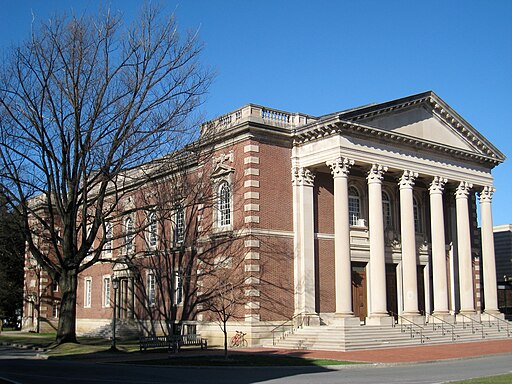
The Berkshire Symphony will be performing at Chapin Hall, an 1100-seat concert hall built in 1910, located on the Williams College campus in Williamstown, MA.
The evening will kick-off with a performance of the overture from Beethoven’s sole operatic outing, Fidelio. This piece is in fact one of four overtures composed for that particular opera. Repeatedly displeased by his own efforts, the composition of Beethoven’s overture became a long and tortured process. He spent more time composing the 7-minute introduction for his opera than most other composers spent on their entire operas! This fourth revision debuted in 1814, nearly 10 years after Fidelio premiered. A work which never would have existed if not for the absolute perfectionism of its composer, it is now a standard of orchestral repertoire.
Brahms didn’t have any better luck composing his Symphony No. 1 in C minor, Op. 68, which took an astounding 21 years to be completed. Exceptionally hard on himself, Brahms made a habit of destroying any works that were less than perfect in his eyes, so his first efforts at the symphony are entirely lost. In addition, he was expected by many to be Beethoven’s successor, a weight he felt all too heavily, already idolizing the famous composer, and which reinforced his drawn out efforts to achieve perfection. When the work was finally completed in 1876, it was still not published right away while Brahms demanded more and more trial performances to ensure his complete satisfaction with the piece. It was nicknamed “Beethoven’s Tenth,” with Brahms intentionally incorporating references to Beethoven’s symphonic works, and it’s success did indeed provide him the stepping stone to emerge from his idol’s shadow.
In the case of Mozart, it was not the shadows of personal perfectionism or a predecessor’s legacy that almost buried his piece for eternity, but rather the simple fact that the pages it had been written on were misplaced! Mozart’s Bassoon Concerto in B-flat Major, K. 191 might never have become a standard of bassoon repertoire if it were not for a mention of it by Mozart in his theme book which proved it had in fact existed at one time. The manuscript is gone, and there are no copies in Mozart’s own hand. In fact, it was not published until after his death, fastidiously pieced together by a respected publishing house. Almost lost, it is now the world’s most well-known piece for bassoon and orchestra.
These three tremendous works the world almost never heard will be performed by the Berkshire Symphony under the direction of Ronald L. Feldman with world-renowned bassoonist Judith LeClair of the Juilliard School. Considering the effort it took for these pieces to be brought to light, it would certainly be a shame to miss them now! Tickets are free and the show starts at 8:00pm.
Date: Friday, March 2, 2012 at 8:00pm
Location: Chapin Hall, Williams College, Williamstown, MA 01267
Price: FREE
